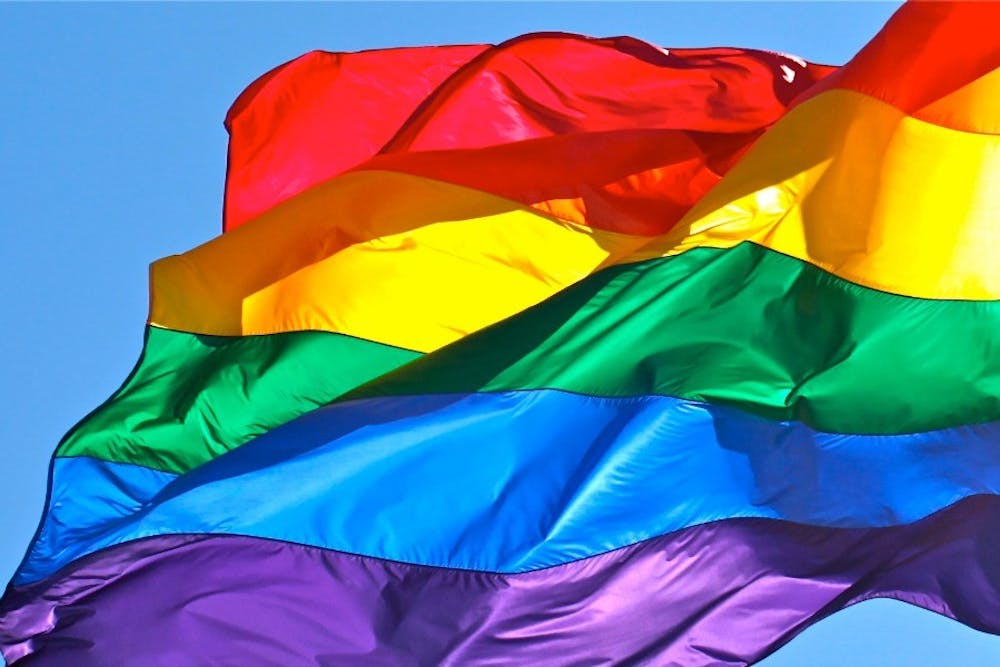By Bonnie Miebers, Senior Staff Writer
GLBTQ students feel less like they belong on campus than their fellow students in Greek life, according to a study by Miami University's Gay, Lesbian, Bisexual, Transgender and Queer Services.
Sixty-six percent of straight Greeks feel they always fit in at Miami, while just 33 percent of GLBTQ students feel equally comfortable on campus.
GLBTQ students in the study said they had fewer friends in sororities and fraternities and more GLBTQ friends compared to straight students. Students in sororities and fraternities reported the opposite, having more friends who were also involved in Greek life and fewer GLBTQ friends than straight students who are not involved in fraternities or sororities.
The study shows that the exclusivity and selectiveness of fraternities and sororities can make even straight students feel left out. Greek life is the reason many students feel at home at Miami, but the way sororities and fraternities are gendered can attribute to the alienation of people who do not fit into those categories.
"I don't feel comfortable walking around campus holding my boyfriend's hand," openly gay first-year Colin McDonough said. "I think if I was in a frat I would feel ostracized because I would be the 'gay' brother."
Paul McCreary, awareness chair of SPECTRUM and openly gay brother of Lambda Chi Alpha fraternity, said he sees things differently.
"I never thought I would be in Greek life," McCreary said.
When he first came to Miami, McCreary said that he believed Greek life was for straight, white people. But, after accepting a bid from Lambda Chi, he said he feels Greek life is inclusive. McCreary said the Interfraternity Conference (IFC) is very accepting and does not tolerate any type of discrimination.
"Greek life, from what I've seen at Miami, isn't homophobic," he said.
The study urges sororities and fraternities that believe their organizations are inclusive to be more open about that inclusiveness. It calls for positive images of GLBTQ identities and discussions of transgender individuals.
Shevonne Nelson, assistant director for the Office of Diversity Affairs agrees that, looking at the study as a reference point, the campus has room for growth.
Enjoy what you're reading?
Signup for our newsletter
"Our GLBTQ students, faculty and staff consistently report only having moderately positive experiences on campus," Nelson said.
"Moderately positive" may not sound bad to the average person, she said, but to the person who is made to feel only moderately okay, it is a big deal.
Nelson, however, believes pinning the problem on a single group, like Greek life, is a part of the problem.
"Singling any one group out is part of the larger problem of why many groups feel moderately or less comfortable on campus," Nelson says. "We need a climate change and we must all be a part of that change."
Students can be a part of and start this climate change by becoming more aware of how they contribute to making GLBTQ students feel like they belong on campus, Nelson said. Showing students they matter and their identities are valued is an important part of making students feel at home at Miami, she said.
"We need to move beyond tolerance and fundamentally challenge the ways we talk about, support, and affirm the GLBTQ community," Nelson said.




